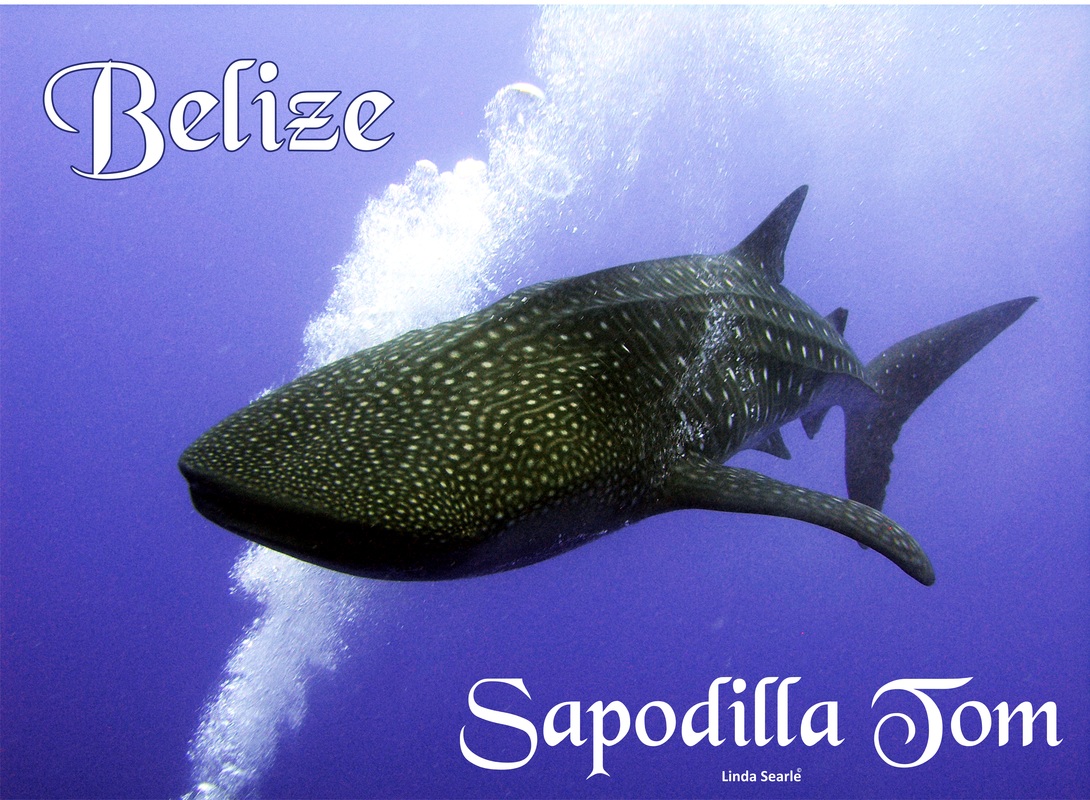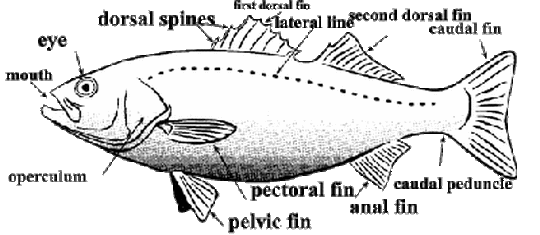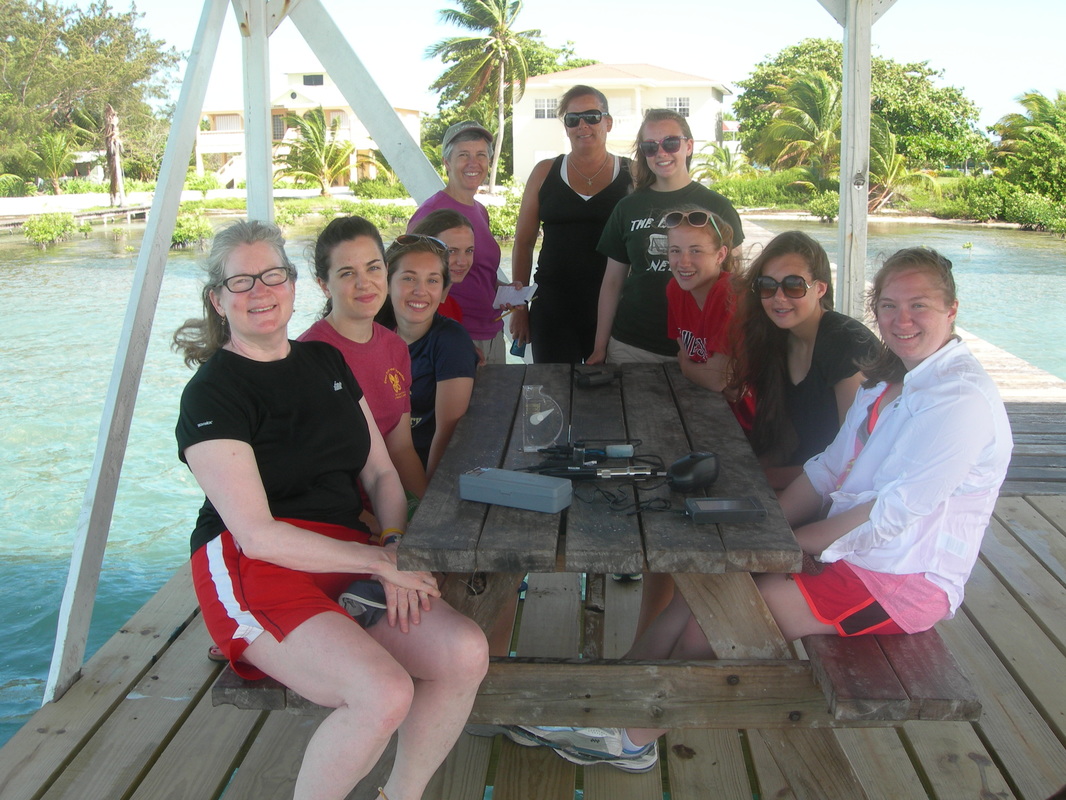Large remora, aka shark sucker, are often observed attached to sea turtles and rays. Smaller remoras can be seen irritating trunkfish and catching a free ride on parrotfish. Photo Linda Searle
finfish diversity
|
The largest fish in the sea is the whale shark, locally known as Sapodilla Tom. Whale sharks migrate through Belize and congregate near Gladden Spit and feed off fish spawn during Spring months of March, April & May. In the summer months whale sharks are found near Hol Box, Mexico, along the northern tip of the Yucatan Peninsula. Photo Linda Searle
|
VALUE
Conducting surveys of reef fish will provide data on changes in fish populations over time and differences between sites. A healthy reef is a diverse reef, one that contains many different types of marine life, including many different types of fish. Finfish come in a variety of shapes and sizes, smaller than a pea, and greater than a boat! There are certain species of fish that are used as indicator species, including commercially important species and herbivores. Commercially important species include the groupers, snappers and queen triggerfish, while the most important herbivores are the parrotfish, which graze on the algae that can outcompete the stony corals, which form the structure of the reef. METHODOLOGY Identifying fish is somewhat akin to bird identification. Many birders are excited about seeing new species, as are snorkelers and divers when learning fish and making a new sighting for the first time. Learning the fish species prior to coming to Belize will enable participants to correctly identify indicator species more proficiently. |
|
One of our student research groups that makes annual visit to Belize has each participant draw fish cards so they learn how to identify common fish species. The cards below were made by Margaret Caron, Essex High School graduating class of 2015. This is a great way for others to prepare for fish surveys in Belize!
|
|
|
SPECIAL FEATURE: ESSEX HIGH SCHOOL
Essex High School science teacher and PADI scuba instructor Nancy Smith has lead student groups to Belize for almost 2 decades! Students take Mrs Smith's class where they learn all about Belize including the geography, the climate, culture, government, food, districts and the ancient Maya. In addition to these topics they also learn fish identification, and some coral and creature identification. Half their time is spent inland so they also learn about the animals, birds and plants of Belize and spend time looking at plants that have medicinal value through the reading of Sastun by Rosita Arvigo. The class culminates with a trip after school is out each June, and the participating students earn money for the trip by fundraising throughout the year. |
online fish id resourcesReady to head back to the classroom? You can start now by visiting the online resources to learn how to identify reef fish.
AGRRA Fish ID Training Powerpoint The Atlantic and Gulf Rapid Reef Assessment (AGRRA) Program is an international collaboration of scientists and mangers aimed at determining the regional condition of reefs in the Western Atlantic and Gulf of Mexico. The training aids available on this page have been prepared for biologists who conduct reef fish surveys in the Caribbean and are an excellent resource for the volunteer researcher. Scroll down to the section titled FISH, then Fish ID Training Course. Also useful are the Fish Flash Cards. You can download the files and start learning fish today! REEF Fishinars A variety of presentations are available for the new fish surveyor. Experienced REEF members can submit surveys online and compare species diversity between sites. |





